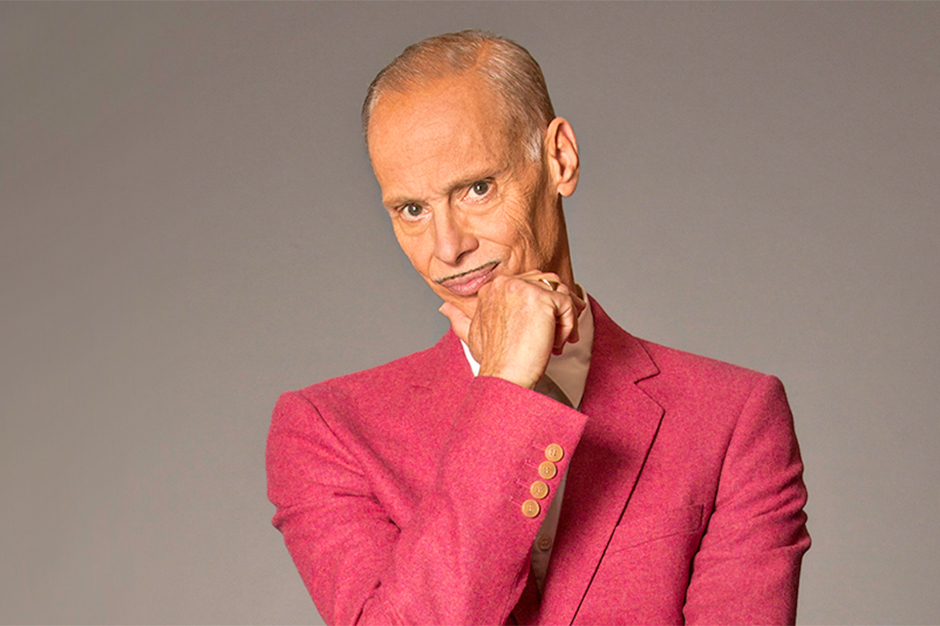
The story of Tracy Turnblad and her quest to integrate the all-white dance program the “Corny Collins Show” has catapulted Baltimore, and its creator John Waters, further into the national spotlight. And Charm City again will have national attention on Dec. 7 when a live version of the Tony-award winning musical based on Waters’ 1988 film airs on NBC.
But if it hadn’t been for Baltimore magazine, Waters says, Hairspray may never have come to fruition.
“The whole idea for Hairspray started with me doing a Baltimore magazine piece,” Waters said in an interview this week. In 1985, “I wrote a story about the reunion of The Buddy Deane Show, which is what led to Hairspray.”
The Buddy Deane Show was a live dance show that provided the inspiration for Hairspray’s the “Corny Collins Show.” Waters’ piece focused on the stories of the teens who had danced on the show. Many of them still get together for a reunion, Waters said, “and dance the Mashed Potato and the Wobble very well, with no irony whatsoever.”
Waters talked to us about Hairspray, what we can learn from it today, and his plans for when it airs live on NBC.
Congratulations on having Hairspray in front of arguably the largest audience yet.
Yeah, I guess it will be. Each time they change it, they re-invent it, and that’s why I think it keeps working. Who knows? It’s very frustrating for me because the night it’s on, I’m appearing on stage with my Christmas show in Denver, so I won’t be able to watch it live. And since it’s live, there’s no way they can send me a screener or anything. I’m going to try blocking out all opinions until I watch it the next morning in Baltimore when I fly home. They even wanted me to do a cameo in it, but I couldn’t because I’m in the middle of my Christmas tour. But I’m really excited about it. I did meet the new Tracy in Baltimore and I told her a lot about the background of it.
Have the producers consulted with you?
I knew both producers before. They even hired me to write a sequel to the musical and the movie that never got made, but they were lovely about it. I know a lot of people behind the scenes who are involved with all different versions of it. It’s in great hands. The only person in the cast I really know is Derek Hough because he was Ricki Lake’s partner on Dancing With the Stars, so I met him when I was out there. I’m excited about some of the cast—Martin Short is just going to be great, and Ariana Grande, I’m just thrilled to see her. I’ve heard she’s a fan of my movies, which is really flattering. Kristin Chenoweth will be perfect as Velma, so I’m excited to see these characters that I thought up for a long time in my old apartment on Madison Avenue by Druid Hill Park Lake, to see them be reinvented over and over and over and over. Gosh, it’s crossed over more than I’ve ever imagined. I’ve always said Hairspray was my Trojan horse—it snuck the same ideas I had in all my movies into Middle America, and they never noticed.
Do you think Hairspray’s themes are still relevant and that’s why there are so many versions?
In some ways, things are a thousand times better than they were then, and in some ways they’re exactly the same, and I think Hairspray shows that. If there was a dance show on today, could whites and blacks dance together? I don’t know that, I don’t know if they could if they were 14 years old. If The Buddy Deane Show was on today, it would, of course, be integrated. There was a show called Shakedown that WJZ produced in the ’80s that I watched every week, which had blacks and whites together. But it was crazy, though. I wish Shakedown would come back—it has to get revived.
What is it like for you to see Hairspray tweaked and altered over time?
I haven’t cringed yet. The music itself is almost impossible to screw up. I think the score is so well done. And they have the luxury of a re-write, first with the musical, then with the movie of the musical. I [myself] have written three other versions, one for a TV show, one for a sequel for HBO. These characters have been around for a really long time now, and they keep getting changed, but I don’t think they have been neutered yet. A lot of young people, when they saw the movies, said, “I didn’t know that happened.” And in Baltimore, it was pretty bad. I remember George Wallace, I remember [the sit-in at] Read’s Drug Store, and all of that was incredibly important to me growing up. It was the first way I certainly rebelled. I was Tracy, in a weird way.
I remember you talking about how you used to hang out with other teenagers, who also happened to be black.
And even black cops hated it. They used to stop us and say, “This isn’t Greenwich Village, you know.” Because I was bringing preppy kids from Ruxton downtown to North Avenue and we were all hanging together, just like in Hairspray. And no one was for it. The black kids’ parents were really uptight that I was around because they didn’t want trouble, and they knew there would have been trouble and they were right. And our parents, though none of them knew, if they’d found out, they would have been horrified, too—not because they were racist, but they just didn’t want us to get in trouble. They knew that white kids and black kids—and gay and straight, which further complicated it—hanging around together in one car, my mother’s station wagon, were bound to attract trouble.
Do you think that would still be the case today?
I think that could still be the case now. And maybe now, we’d get shot. Back then, the cops would just shake their head when they’d pull us over. And I was not scared for my life certainly, even when I got arrested for the car I was driving.
Tolerance is obviously a hot topic right now, with our recent presidential election, and it’s also a theme in Hairspray. What can we draw from the musical now?
A whole new anarchy can happen. All I’ll say is college students, stop studying, start protesting. The political stuff, that’s my Christmas show, I’m not doing that here. You’ve got to give me some material for a paying audience [laughs]. Obviously Trump winning was a shock, but if Hillary had won there would be lots of Trump supporters causing trouble, it would be the other way around. The country’s divided, and that sometimes produces great art and scary walks to the car.
I don’t know what’s going to happen, but I think Hairspray speaks to the power of protest, and how unlikely protests work. Like a fat girl fighting for integration was a good idea. Somebody from The Buddy Deane Show told me a black girl could have gotten on easier than a fat girl. No fat girls even came on to apply. So that has also changed—everything has changed.
<p “=””>It still seems like Hairspray is a good reminder to us that we still have work to do.
I always say that when you get on a soapbox, nobody listens. If you can make people laugh, they’ll listen. Hairspray has gone on to popular with all kinds of people—Republicans, Democrats, everything. The senior Bushes came to see Hairspray and were doing the Twist out front.
You probably never expected that.
Oh, there’s plenty of things I never expected in my life. That’s the thrill of show business—that anything can happen. When I wrote Hairspray, I just thought it was the next movie I was making. Did I want it to be more commercial or anything? Absolutely not.
Is it strange for you to be really well known for Hairspray and maybe not as well known for acclaimed, beloved movies like Female Trouble?
I think it depends where I am. If I’m in Greenwich Village, I’m more known for Female Trouble. If I’m on the subway, people recognize me for being in the Chuckie movie. If I’m around children, they know me from The Simpsons. It just depends where I am. As long as somebody from each group knows something that I did in life, then I’m doing fine.
